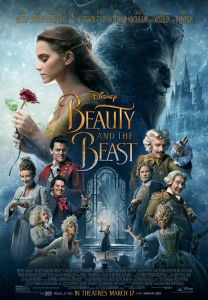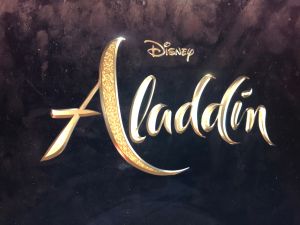
Remakes have become a common trope for movies in recent years. However, there has been a lot of concern over why there are so many coming out.
A lot of remakes that have come out in recent years have been of popular films from the 1970s, 80s and 90s including; “Robcop,” “Total Recall,” “Footloose,” “Carrie” and so many more. However, most remakes have received a lot of negative reviews from critics and audiences with some raising concern that studios are really using them just to make more money and that there’s a lack of originality in films these days.
However, there are some instances where remakes can be a good thing. For example, if a remake of a classic film is considered bad, it can serve as a reminder to audiences as to why the original is better. In addition, it can showcase genuine improvements to the original film as well as introduce a new filmmaker.
Assistant Provost of International Affairs Dr. Paul Wright claims that even though there is a sense of tiredness among consumers when it comes to reboots and remakes, yet a certain amount of such properties do well for studios. So much so that studios have begun accepting such under-performing projects in the hopes that a couple of them will be major blockbusters.
“As generally risk-averse as Hollywood studios are in terms of the bottom line and the need for films to be major hits right out of the gate, in the realm of remakes at least, it seems that their financial calculations allow for a lot of risk-taking when it comes to established properties, be they decades or merely a handful of years old,” Dr. Wright said.
Dr. Wright pointed out that Hollywood has been doing remakes for as long as they have been around. However, the stakes are higher than before as more remakes are coming out faster than before.
However, Dr. Wright believes that the best remakes are usually ones that are older or cross cultural. Examples include the 1960 version of “The Magnificent Seven,” which was a remake of Akira Kurosawa’s “Seven Samurai,” Sergio Leone’s “A Fistful of Dollars” which was a remake of Kurosawa’s “Yojimbo” and Martin Scorsese’s Best Picture-winning film “The Departed” which was a reinvention of the Chinese film, “Internal Affairs.”
“I think what made these reinventions work was an acknowledgment of the storytelling genius in the original property combined with a willingness to tailor the remake to an entirely new cultural context,” Dr. Wright said.
Additionally, Dr. Wright claimed that remakes are often cash grabs as Hollywood and other film industries have relied on profitable properties being recycled in a variety of ways. The reason includes a seemingly proven profitability and nostalgia that producers hope to trade on. However, we are apparently being market-engineered to feel nostalgia for media that is less than a decade old.
In recent years, Disney has been producing a lot of live action remakes to their most classic films including “Cinderella,” “The Jungle Book” and “Beauty and the Beast” with several more on the way. Such remakes are becoming more frequent as remakes of both “Dumbo” and “Aladdin” are scheduled for release in 2019 and several others to be released in 2020.
While some would consider such remakes to be nothing more than cash grabs, others have argued that these remakes are becoming more progressive. For starters, “Beauty and the Beast” had made several changes including having an LGBT character and a more feminist take on the tale. In addition, the upcoming “Mulan” remake will feature an all Chinese cast in response to a petition created by someone who claimed to have read the script and noticed some potential white-washing in it.
Dr. Wright claims that Disney is simply doing what they’ve always done: taking existing properties and recasting them for present-day audiences. However, he has noticed that Disney has become more aggressive than before, especially since they are remaking their own movies.
Junior human resources management major Ashlee Dushkewich has seen “Beauty and the Beast” and “Cinderella” and greatly enjoyed them despite concerns about the auto-tuning in “Beauty and the Beast.” Despite thinking that the remakes aren’t exactly necessary, she thinks that they’re a great idea for people who saw the original movies growing up.
“It’s a great experience to bring family and friends together for,” Dushkewich said. “Like when ‘Incredibles 2’ came out, my family all reminisced on the first time we all saw ‘The Incredibles’ together so it was fun to almost relive that experience.”
Dushkewich is very excited for the upcoming Disney remakes and is hoping that they make more. As a longtime Disney fan, she really has enjoyed watching them use their films and characters to bring people together and looks forward to seeing them expand on them in the future.

“I think the sequels and remakes say a lot about how the creators of them had grown and wanted to depict how their characters have grown and even expand to their viewers,” Dushkewich said.
Junior education major and former Disney College Program participant Danielle Basile is a longtime fan of Disney and has greatly enjoyed the remakes and sequels such as “Beauty and the Beast,” “Monsters University” and the “Toy Story” sequels. She enjoys them because she appreciates how they continue the stories of her favorite characters and learn more about them in the process.
Basile loves how Disney is making more remakes and sequels and is greatly excited for “Dumbo” and “Aladdin.”
“’Dumbo’ and ‘Aladdin’ are two of my favorite movies and I think it’ll be so cool to see a different take on such an amazing movie,” Basile said.
Basile believes that Disney is branching out and trying new things with their remakes and sequels and feels they should keep it up as they are able to catch people’s attention.
Despite there being excitement for the upcoming Disney remakes and sequels from fans, there is some concern about how aggressive Disney has become since it is now hoping to profit on their own films.
“This is rather different than their classic heyday of taking stories in the public domain and Disney-fying them,” Dr. Wright said, “They are now engaged in mining, some would argue cannibalizing, their own inventory.”


